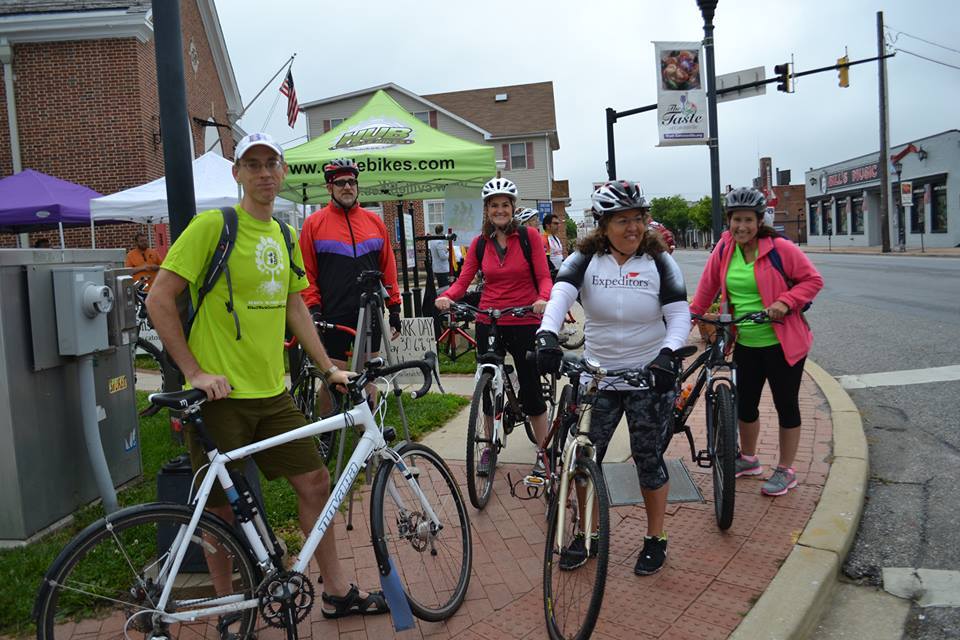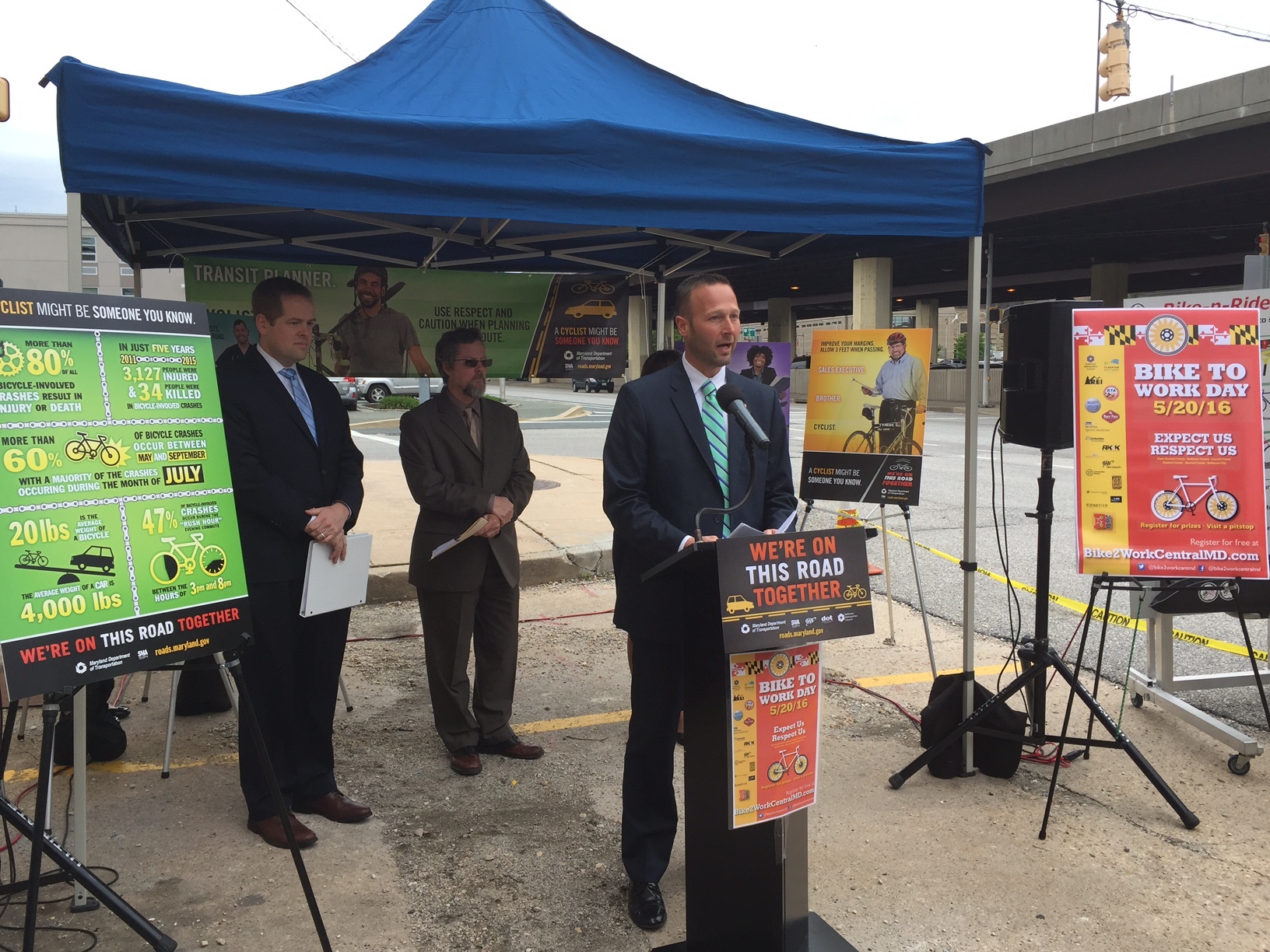

Statistics collected by the State Highway Administration also reveal that more than 60 percent of bicycle crashes occur between May and September, and 47 percent between the evening rush-hour commute between 3 p.m. and 8 p.m.
“We’ve got to look out for each other,” said Slater, stressing that both drivers and bicyclists need to follow the rules of the road.
Bike Maryland interim executive director Steve Miller added that texting and talking on the phone while driving has become a dangerous hazard not for only for automobile drivers, but especially for bicyclists who are unprotected.
“Distracted driving has become the new DUI,” Miller said. “And it’s willful and intentional.”
To help encourage more bicycle commuting as well as protect those who ride bicycles in the city as a means of transportation, the City of Baltimore will also be adding additional bike infrastructure in coming months, including the launch of a long-delayed bike-sharing program. That effort, scheduled for the fall, will place 50 stations and 500 bikes around the city for short-term rental and will include 200 electric-pedal assist bikes.
Also in the works is the construction of a dedicated cycle track on Maryland Avenue, running from 29th Street to Pratt Street, as well as six miles of new bike lanes—many connecting to the new cycle track.
In terms of the percentage of people who indicate that bicycling is a part of their commute, the U.S. Census reported a 62 percent increase nationwide from 2000 to 2014. Portland at 7 percent, Minneapolis at 4.6 percent, San Francisco at 4.4 percent, Washington D.C. at 3.9 percent posted some of the highest bike commuter rates in the country, with Baltimore ranked 38th among the 70 largest U.S. cities at .7 percent.
Ultimately, Baltimore City officials would like to see the percentage of bike commuters reach 9 percent over the next 15 years.
Some of the cities experiencing the biggest bike commuting increases over the past several years are Pittsburgh, where rates have more than tripled, and St. Louis, Chicago, Oakland and New Orleans, where rates have doubled.
“Biking is really important for a lot of reasons,” Caitlin Doolin, bicycle and pedestrian planner for Baltimore City, told The Sun. “It’s a huge part of our urban fabric, making transportation more sustainable, more healthy. People who bike tend to have higher attention spans at work, take less sick days, and have better health ratings from their doctors. And also, it’s fun.”
